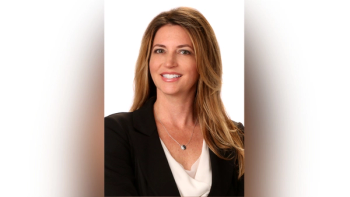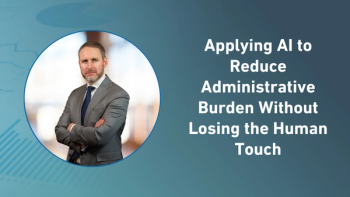
- Applied Clinical Trials-06-01-2019
- Volume 28
- Issue 6
Building a Physician Referral Network: A Case Study
Exploring the Institute for Neurodegenerative Disorders’ non-traditional approach to engaging community physicians.
Physicians play a critical role in facilitating patient participation in clinical research.
1
In fact, a poll by Research!America found that 72% of respondents would participate in a trial if their doctor recommended it.
2
However, general practitioners often are not involved in the recruitment strategy for clinical trials. Historical barriers have made engagement with physicians challenging. They may fear losing care of patients to clinical trial site providers, be unfamiliar with the trial and principal investigator (PI), or have concerns about jeopardizing the doctor-patient relationship.
3,4
One approach to building trust and overcoming these obstacles is for research institutions and PIs to actively engage with community physicians. Reaching out to local physicians to increase knowledge about trials and generate confidence can facilitate referrals. We explore this theme in our third column in
Applied Clinical Trials
’ Eye on Patient Advocacy series.
The Institute for Neurodegenerative Disorders (IND) serves as a prime example of how research institutions can better engage with community physicians to build referral networks. Founded in New Haven, Conn., in 2001, IND develops diagnostic tools and treatments for individuals with neurodegenerative disorders. Its founders, Kenneth Marek, MD, and John Seibyl, MD, bucked the traditional research institution model. Foregoing regular clinic hours, they focused instead entirely on clinical research studies. This novel approach meant that trials conducted at IND had to rely heavily on patient referrals from community clinicians.
Through several years of dedicated outreach to clinicians in the community, IND built a referral network of neurologists located across Connecticut. As a result, the top two referral sources for trials at IND are: 1) new patient referrals from community clinicians, and 2) a database of patients referred to past IND studies. This resource of patient referrals has made IND a top recruiting site for Parkinson’s disease (PD) studies, including the
Conduct due diligence
Learn about the practices in your community
To maximize your time and effort, do online research about local practices. Begin with clinics that are most likely to see individuals with the condition you seek. For IND, neurologists historically have provided the most referrals for their neurodegenerative disease studies. Consider connecting with primary care physicians and allied healthcare professionals, but prioritize specialty physicians as they may more frequently engage with your target population.
Understand the needs of community clinicians
Ask physicians about challenges they may be facing in their practices. For example, a community neurologist may be having difficulties diagnosing a patient. Offer to provide an expert second opinion and send your recommendations. Point out research studies that include procedures and assessments that physicians may find useful to treat their patients. For instance, Dr. Russell has found that community physicians often seek DaTscans for their PD patients. In addition, explain the various patient wellness programs available at your site, such as support groups, education events, and fitness/wellness classes. Patients can learn about recruiting trials at your study site through these programs.
Explain the value of research
In addition to sharing the latest in PD research and recruiting trials, remind community physicians that these studies are necessary for the discovery of biomarkers and new and improved treatments. Physicians want the best care for their patients. Reminding them of the importance of clinical research in this process may motivate them to provide referrals. Explain that clinical trials give patients treatment options and access to certain procedures, such as a imaging, at no cost.
Build relationships
Be willing to dedicate time
Developing a partnership with community physicians cannot be done overnight. It took years for IND to forge the relationships it has today. At the outset of building a referral network, remember it will take time and effort to be successful.
Schedule a face-to-face meeting
When trying to engage with community clinicians, there is no substitute for a face-to-face meeting. Begin by calling the practices you have identified. Introduce yourself, provide them with background on your research, and let them know that you are trying to generate awareness about research studies at your institution. Invite the clinician(s) to your office for a discussion with other medical providers from the community about the latest advances in research and any trials that are currently recruiting. Maximize your time and the number of physicians you can connect with by hosting the meeting in your office or another location that can accommodate a bigger group. If a physician rejects the invitation, be persistent and ask for times that you can drop by their office.
Facilitate patient referrals
Make the process of referring patients as simple as possible. Give local practices study flyers and brochures for patients to read in the waiting room and discuss with their doctor. Provide physicians with pocket cards listing high-level eligibility criteria to quickly reference when examining patients. Avoid presenting community clinicians with eligibility criteria not usually gathered through standard clinical care, such as scales and questionnaires used in clinical trials. Physicians may rule out patients if they are unfamiliar with some eligibility criteria. Supply practices with a fax referral form to easily send contact information and a note about interested patients. Obtain patients’ contact information, with their permission; this is faster and more efficient than waiting for patients to call the research site.
Engage with physicians for the long term
Build trust
Assure community clinicians that your intention is to expand awareness about research opportunities and help interested patients find a study that is right for them. To alleviate fears that they may lose patients to healthcare providers at your institution, consider the following language: “We will provide only the care necessary to conduct the trial and to ensure patient safety. We will refer the patient back to you for any clinical issues.”
Communicate patient progress
Update referring clinicians about their patients on a regular basis. If a patient is not eligible for any recruiting studies at the site, send the referring physician a note expressing your gratitude for the referral and explain why the individual was ineligible. If a referred patient is a study candidate, inform their doctor and make yourself available to answer questions. Upon enrolling a referred patient into a study, send their physician an email or letter explaining any medical precautions or exclusionary medications. After a patient is enrolled, provide the referring physicians with updates around milestones, such as a patient’s test results and study withdrawal and/or completion. Consider organizing a group meeting or webinar to explain study results to all referring physicians.
Reinvigorate your physician referral network
Building a referral network is an ongoing process. Physicians leave practices and new ones are added. It is important to develop new partnerships and maintain existing relationships. IND invites community clinicians from across Connecticut to dinner twice a year to discuss advances in Parkinson’s research and new treatments or challenges in the field. A biannual webinar also can serve as an alternative to an in-person meeting. Remember to express gratitude to physicians in your network for their continued commitment to advancing research.
While there is no denying that building a physician referral network takes time and dedication, expanding research awareness to more clinicians and ultimately more patients can help accelerate recruitment for clinical trials.
For more information on the Institute for Neurodegenerative Disorders and its work, visit
References
- Getz, Kenneth A. “Enabling Healthcare Providers as Facilitators of Patient Engagement.” Applied Clinical Trials, Oct. 1, 2019,
http://www.appliedclinicaltrialsonline.com/print/343713?page=full - Staff Reports, Research!America. “Poll: Majority of Americans Would Participate in Clinical Trials if Recommended by Doctor.” Elsevier. July 31, 2013,
https://www.elsevier.com/connect/poll-majority-of-americans-would-participate-in-clinical-trials-if-recommended-by-doctor - Ramirez, Amelie G. et al. “Early Phase Clinical Trials: Referral Barriers and Promoters among Physicians.” J Community Med Health Educ. Sept. 24, 2012; 2(8):1000173.
https://www.ncbi.nlm.nih.gov/pmc/articles/PMC3782313/ - Michaels, Margo, et al. “Impact of Primary Care Provider Knowledge, Attitudes, and Beliefs about Cancer Clinical Trials: Implications for Referral, Education and Advocacy.” Journal of Cancer Education, 30(1): 152-157, Research Library
James Gibaldi, MS, Associate Director; and Bernadette Siddiqi, MA, Associate Director; both with The Michael J. Fox Foundation in New York, NY. To contact the MJFF Recruitment and Retention Team, email:
MJFF would like to acknowledge the following individuals for their contribution to the research presented in this case study: David S. Russell, MD, PhD; Sarah Berk, MPH; and Catherine M. Kopil, PhD.
Articles in this issue
over 6 years ago
Master Protocol Guidance in Cancer R&D: Impact on Industryover 6 years ago
The Benefits of RWD & RWE in Oncology Trialsover 6 years ago
Glimpsing the Future of Clinical Trial Designover 6 years ago
FDA Facilitates Expanded Access for Cancer Drugsover 6 years ago
News Notesover 6 years ago
Applied Clinical Trials, June 2019 Issue (PDF)over 6 years ago
Navigating Drug Development Through More Turbulent Watersover 6 years ago
Reveling in 2018's Revealing Drug and Biologic ApprovalsNewsletter
Stay current in clinical research with Applied Clinical Trials, providing expert insights, regulatory updates, and practical strategies for successful clinical trial design and execution.




